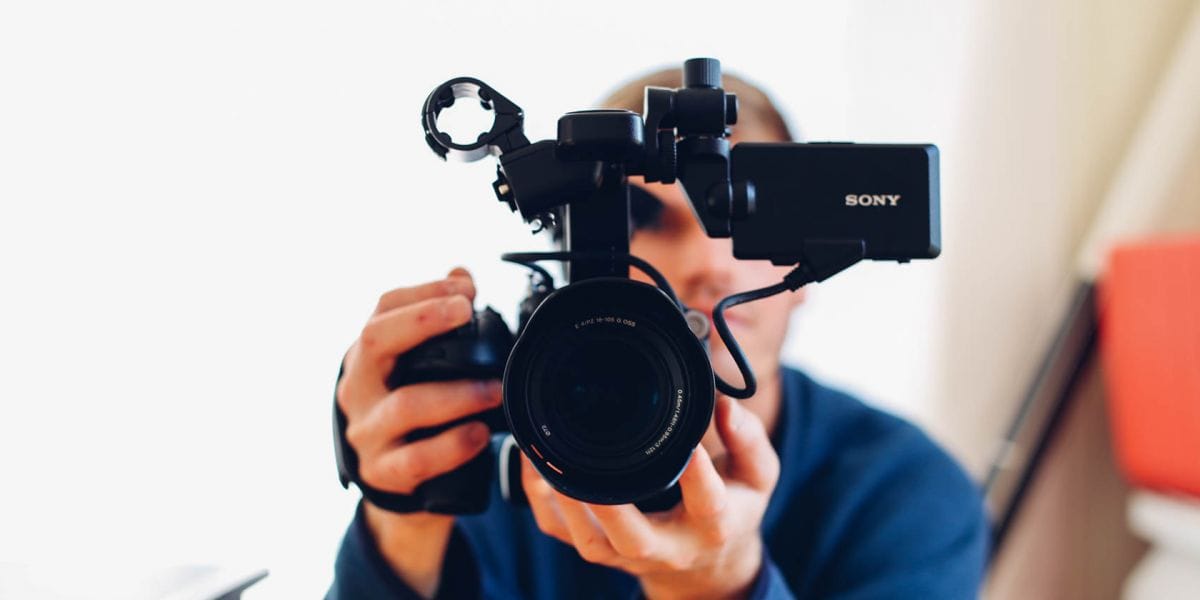Advanced Legal Videography for Mediations.
Advanced Legal Videography for Mediations.
Blog Article
The Duty of Lawful Videography in Depositions and Trials
Lawful videography has emerged as a necessary tool in both depositions and tests, providing a diverse method to recording witness statements. As lawful professionals significantly recognize its worth, it prompts a much deeper examination of exactly how these visual records can affect juror perceptions and trial end results.

Significance of Lawful Videography
Legal videography plays an essential duty in the documentation and discussion of depositions and tests. This specialized field integrates technical abilities with lawful knowledge to produce a dependable document of process that can significantly influence situation end results. The visual element of legal videography boosts the understanding of witness testament, allowing jurors and judges to observe not only the talked words yet also the temperament, emotions, and body language of the witnesses.
Furthermore, lawful videography gives an objective account of events, reducing the capacity for misconception that can accompany composed transcripts alone. This visual documents offers as an essential tool throughout test discussions, assisting in a clearer and more influential story for both plaintiffs and defendants. The capacity to replay video clip sections during court procedures enables lawful teams to emphasize vital points, enhancing their disagreements efficiently.
The value of legal videography expands beyond the court room; it likewise plays a vital duty in protecting proof for future recommendation, whether for appeals or more legal activity. Because of this, its assimilation into the lawful process is essential for making certain a fair and exact representation of the truths, ultimately contributing to the search of justice.

Process of Legal Videography
While catching the subtleties of depositions and trials, the process of legal videography includes a number of crucial steps that guarantee top quality, precise recordings. A specialist lawful videographer prepares by assessing the instance products and recognizing the specific requirements of the deposition or trial. This preparation includes acquainting themselves with the individuals and the context, which assists in recording pertinent details.
On the day of the recording, the videographer establishes the required equipment, which usually consists of high-definition cams, microphones, and correct lights. Ensuring optimum angles and audio top quality is critical, as it straight affects the efficiency of the recording. The videographer interacts with lawyers and individuals to develop procedures, making sure that everybody understands the recording process.
Throughout the deposition or test, the videographer carefully videotapes the procedures, paying very close attention to both spoken and non-verbal hints. This includes recording the temperament and responses of witnesses and attorneys. After the session ends, the videographer may modify the video for clearness and compliance with lawful requirements, producing an end product that accurately reflects the process for future recommendation and use in lawful contexts.
Benefits in Depositions
The incorporation of videography in depositions supplies many advantages that boost the general process of collecting evidence. One key benefit is the capacity to catch look at here now witness testimonies with visual and acoustic integrity, offering an extra precise depiction of the witness's temperament, tone, and body language. This multidimensional strategy allows lawyers and juries to evaluate integrity much more effectively than standard written records alone.
Furthermore, videographed depositions function as a powerful device for preserving statement. Should a witness ended up being inaccessible for trial, their taped deposition can be played in court, ensuring that their proof continues to be available and pertinent. This facet substantially reduces the danger of shedding crucial info that might influence case results.

Last but not least, videography boosts the total professionalism of the deposition procedure, instilling self-confidence in customers relating to the thoroughness of their lawful representation (legal videography). By leveraging innovation, lawyers can considerably improve the effectiveness of depositions
Impact on Tests
In lots of trials, the integration of videography can substantially affect the discussion of evidence and the jury's understanding. Lawful videography records witness testaments and important evidence in a dynamic layout, enabling jurors to engage with the product on several levels. This aesthetic element enhances the narration aspect of a test, offering context and emotional vibration that conventional text-based evidence might lack.
In addition, video recordings can serve as powerful devices for impeachment throughout cross-examination. When disparities occur in between a witness's previous declarations and their court testimony, video evidence offers an unbiased recommendation that can guide jurors' viewpoints. This immediacy and clarity can boost the integrity of a celebration's story while concurrently undermining opposing disagreements.

Future Trends in Legal Videography
As we look toward the future of lawful videography, several arising trends guarantee to reshape its function within the court. One considerable pattern is the integration of expert system (AI) in video analysis and editing. AI can improve the process of determining essential moments in recorded depositions, permitting lawyers to promptly access pertinent material, thus enhancing effectiveness in situation preparation.
Additionally, the surge of online truth (VR) and boosted fact (AR) innovations is expected to change how jurors experience proof. legal videography. By submersing jurors in a simulated environment, these modern technologies can supply a more extensive understanding of complicated scenarios, bring about even more enlightened considerations
Moreover, the increasing need for remote depositions, sped up by the COVID-19 pandemic, will likely continue. Legal videographers anonymous will certainly require to adapt to brand-new software and systems to make certain top notch recordings in virtual settings.
Finally, the growing focus on data security will certainly necessitate more stringent protocols for saving and sharing video proof. As the lawful landscape progresses, lawful videographers need to stay abreast of these patterns to maintain their significance and effectiveness in the judicial process.
Verdict
In summary, legal videography offers a crucial feature in the judicial procedure, enhancing the integrity of depositions and trials. As modern technology proceeds to evolve, legal videography is poised to additional transform its function within the legal landscape.
Report this page